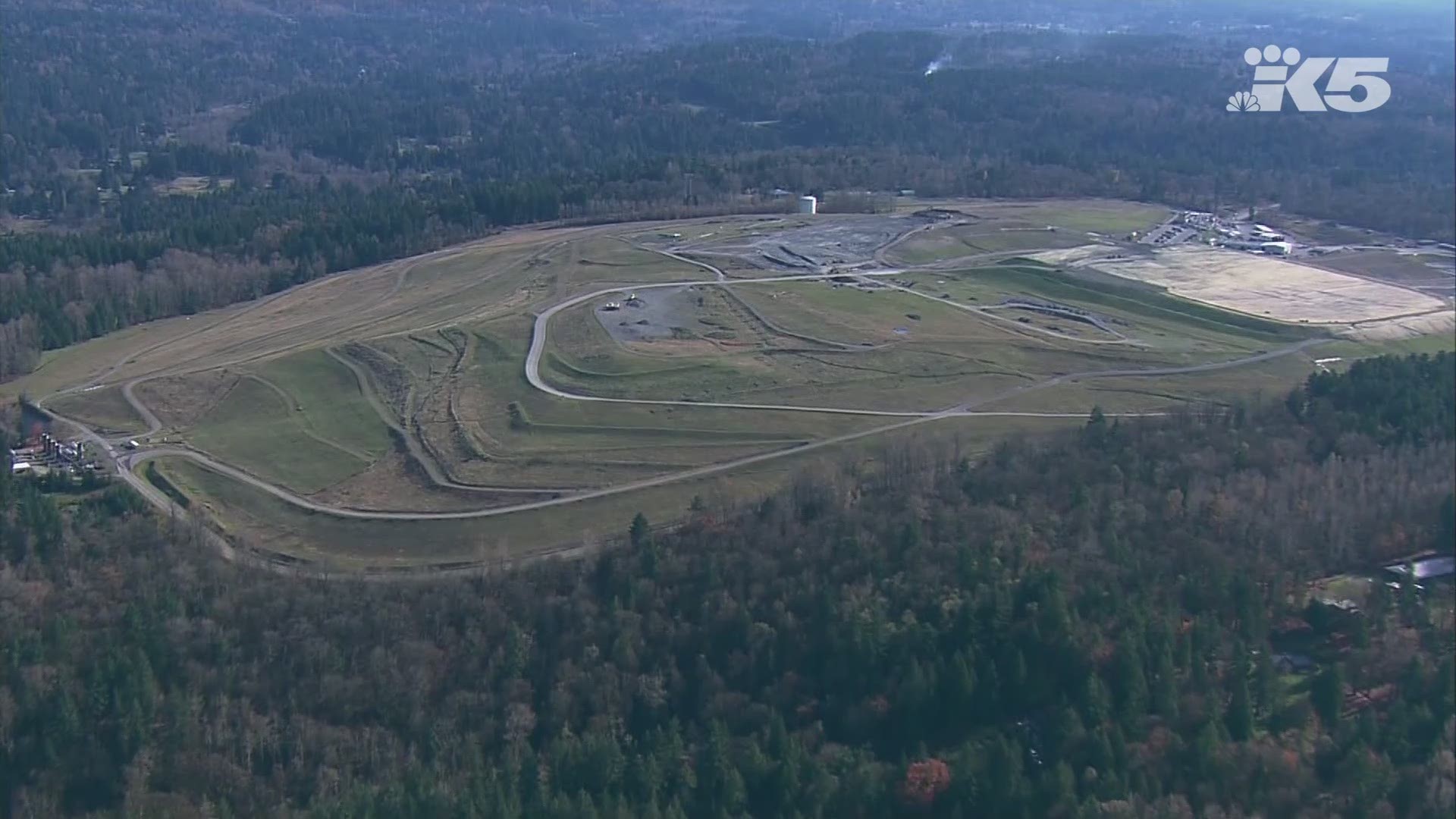SEATTLE — A proposal to incinerate garbage instead of exporting it by rail would save King County between $4.3 billion and $7.2 billion over 50 years, according to a report prepared in September.
King County council members were expected to be briefed on the study at the Committee of the Whole meeting Monday.
The King County Waste-to-Energy and Waste Export by Rail Feasibility Study, which the Council requested as part of the 2019-2020 budget, examined how the county should deal with its garbage as the Cedar Hills landfill nears capacity.
About 931,000 tons of waste were disposed at Cedar Hills landfill in 2017, according to King County. Pat McLaughlin, director of King County Solid Waste, previously said the landfill is expected to reach capacity in 2025.
A waste-to-energy facility would combust garbage in a controlled furnace system and generate electricity, which could be used to power the facility or be sold to local utilities. Under the rail model, garbage would be trucked to an intermediate facility and sent by train to an out-of-county landfill.
It would cost between $6.96 billion and $8.9 billion to construct a waste-to-energy facility and between $11.25 billion and $16.14 billion to export trash over 50 years, according to the report.
The report also found a waste-to-energy facility would improve recycling rates and energy recovery and give “significant financial and environmental benefit” over packing out trash by rail. An incineration facility would have less greenhouse gas emissions than exporting waste by rail, because recycling the ash byproduct and recovered metals could help offset emissions.
Both plans would take some time to implement. It would take about eight to 11 years before a waste-to-energy facility could be up and running, according to the report. It would take two to six years before the county could start exporting waste, because it is “unlikely” intermodal facilities could handle all the county’s current waste, and a new facility may need to be constructed or expanded.
In April, King County Council approved plans to expand the Cedar Hills landfill, which will extend the life of the landfill until at least 2040. However, King County’s waste management plan also directs lawmakers to look at other more long-term solutions, like waste-to-energy or exporting by rail.

